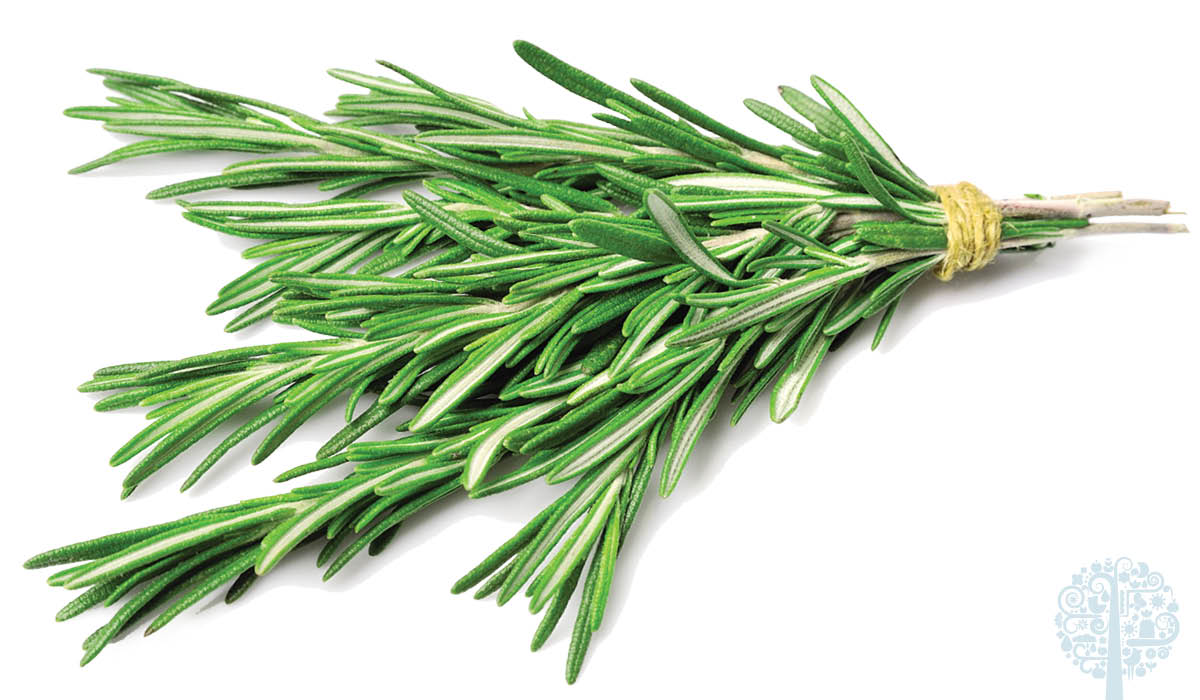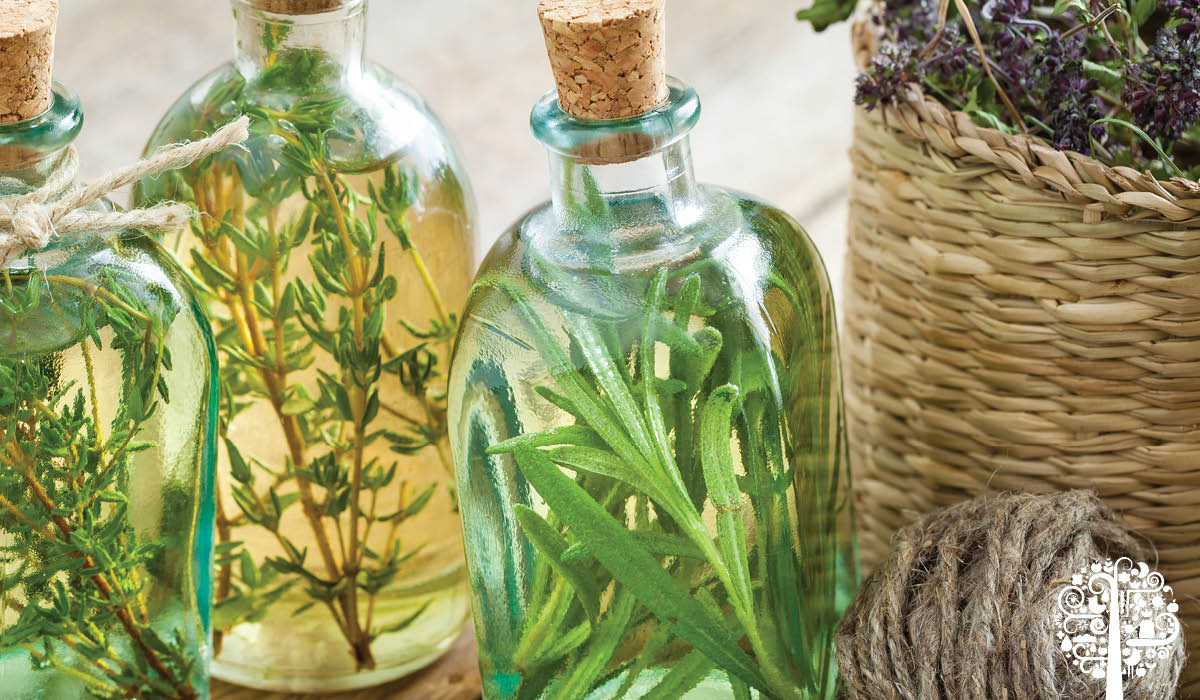A Culinary Gem and Flavourful Herbal Medicine
More people are jumping into the world of growing aromatic herbs, either on the balcony or in the garden. Home chefs creatively use herbs to enhance flavors in their meals and drinks. And while they please the taste buds, culinary aromatic herbs have much more to share with us. They are a veritable medicinal cornucopia as well! Aromatic and fragrant, the herbs offer a tremendous number of medicinal properties.
Rosemary: Springs of Goodness
With its robust and coniferous smell, rosemary is one of the best-known culinary herbs. However, in ancient times, rosemary’s uses and purposes were plenty and not only reserved for cooking. Native to southern Europe, the herb was historically used in the Greek Antiquity and Roman times as an offering to Aphrodite, the deity of love. The resinous plant was also burned as incense to purify the air. In addition, rosemary was weaved as wreaths and worn by intellectuals who swore the herb helped boost their memories. Early in history, wealthier people used rosemary in one of the first alcohol-based perfumes.

Rosemary’s Multiple Virtues
Rosmarinus officinalis is packed with medicinal properties has many gifts to share. The herb is an excellent source of iron, calcium, and vitamins A, C, and B-6. It also has anti-bacterial, anti-inflammatory, and powerful antioxidant functions.
Soothing Muscles and Aches
Due to its anti-inflammatory properties, rosemary is a great all-natural pain reliever. The twigs of the plant can be infused in vegetable oil and used to massage aching muscles. Adding a few drops of rosemary essential oil to the herbal treatment enhances the beneficial effects, treating aches, joint and muscle pain, sciatica, and helping muscles relax. The infused oil acts as a rubefacient as well to soothe gout, rheumatism, and neuralgia conditions.

You can massage the same infused oil preparation into the scalp to help with hair loss. For best results, use the oil over a long period.
Boost Memory and Alertness
Some compounds in rosemary essential oil, such as 1,8-cineole, may be responsible for positive changes in memory performance. Rosemary has a pronounced action on the brain and central nervous system. The medicine is in the potent and refreshing herbal scent molecules, so it is easy to benefit through aromatherapy. This powerful herbal tool helps clear the mind and increases mental awareness. The same essential oil is also used in aromatherapy to treat anxiety-related conditions.
A Fragrant Cup of Tea
Herbal teas are one of the simplest methods to reap the benefits of medicinal plants. In addition to being good for your health, rosemary tea is also delicious. Take a teaspoon of fresh rosemary leaves from your garden and add them to a cup of boiled water—cover and steep for five minutes. Then, strain the leaves and add some honey or freshly squeezed lemon juice to taste.
Soothing Digestion
Rosemary is a carminative, and so an infused tea works wonders after a heavy meal. It can improve the digestive process by reducing gas and bloating and helps soothe and calm an upset stomach. The polyphenolic constituents of rosemary also balance and regulate blood sugar in the body.
Activating Blood Circulation
Drinking hot rosemary tea can help warm cold hands and feet as it also enhances blood circulation. In addition, the herb has a tonic effect on the entire cardiovascular system. In folk herbal medicine tradition, rosemary was infused in red wine and enjoyed for heart health.
A Pampering Herb
If you made too much tea and won’t drink the rest of it, use your herbal infusion as a hair rinse! Rosemary water will help with dandruff and moisturize a dry scalp, making your hair shine as well. When applied to the face, the rosemary water acts as a refreshing astringent that balances and tones the skin.

Thanks to its many benefits, rosemary is a must-have in our kitchens, on our windowsills, or in the garden!
Disclaimer: Used as a cooking herb, the aromatic plant is safe. However, high doses of rosemary may cause miscarriage. Therefore, pregnant women shouldn’t take any supplemental rosemary or use the essential oil. A therapeutic dosage of rosemary can also interfere with anticoagulant and blood pressure medications, diuretics, and drugs containing lithium. If you have an allergy to aspirin or salicylate, exercise caution when using medicinal rosemary. Always ask your health care practitioner before taking rosemary supplements.




